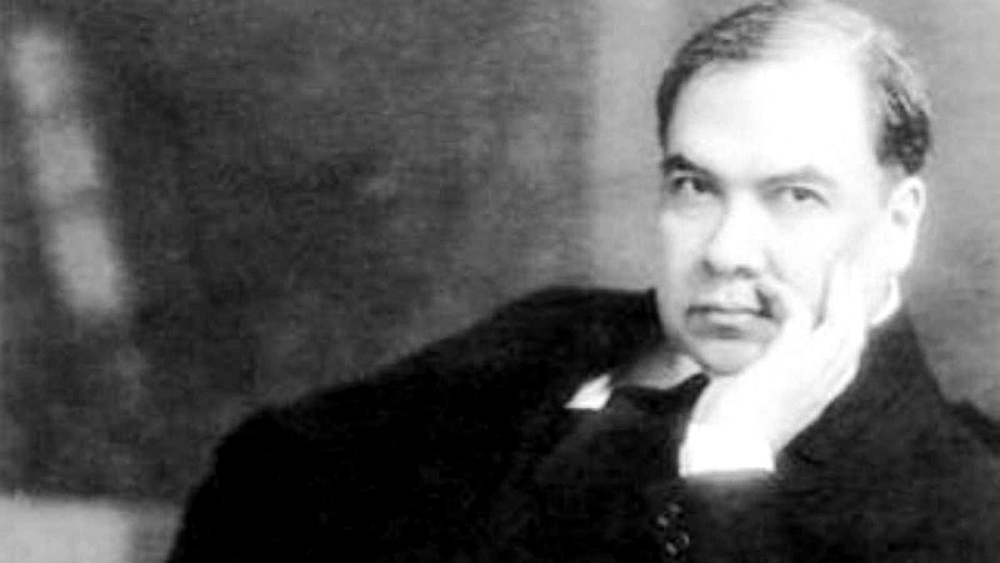
Born in Nicaragua as Félix Rubén García Sarmiento, Rubén Darío (1867-1916) is one of the most famous and influential of all Latin American poets. Generally credited with initiating the modernismo movement, he has had a profound impact upon Latin American letters. In the English-speaking world, however, his reception has been confused by a lack of critical attention and by translations that tend to obscure the shock of his language at the dawn of the twentieth century.
Many translators have insisted on attempting to translate something of Darío’s carefully constructed rhyming schemes. They require that the English translations adhere to similar formal rules, necessitating, therefore, the gross contortion of other aspects of the poetry. Consequently, it is not unusual to see translations of Darío in which the phrasing and diction, and even the images themselves, have been changed entirely by the translator.
Consider the opening lines of ‘Nocturno (Nocturne)’, which are as follows:
Los que auscultasteis el corazón de la noche, los que por el insomnia tenaz habéis oído el cerrar de una puerta, el resonar de un coche lejano, un eco vago, un ligero ruido ...
Greg Simon and Steven F. White, in the Penguin Classics edition of Selected Writings (2005), chose to translate these lines as:
For those who’ve heard the night’s heart by auscultation in your endless insomnia, there’s a closing door, a passing carriage, whose loud reverberation echoes until you cannot hear it anymore.
Simon and White manage to preserve an end-rhyme, but in doing so they lose the opening’s powerful, anaphoric drive. Their version sounds almost like an extract from a children’s nursery rhyme. Darío’s poem, however, develops a darker, more brooding atmosphere, where the order of the rhyme is broken by a series of fragmented images.
To our ears, associations to a conservative tradition dog poetry punctuated by end-rhyme. Yet at the time of his writing Darío was a remarkably influential innovator, his poems unlike anything heard or read in Spanish before. So in these translations I have done away with rhyme – which is far less obtrusive in Spanish than in English (because it can occurs more easily) – in order to highlight the gritty, morbid nature of these four poems.
to Mariano de Lavia
You who’ve heard the heart of the night,
you with your tenacious insomnia, who’ve heard
the closing of a door, the distant resonance of a car,
a vague echo, a thin sound …
In the moments of mysterious silence,
when the forgotten ones arise from your prison,
in the hour of the dead, in the hour of repose,
you’ll read these lines of impregnable bitterness!
Like an emptied glass into which I pour the pain
of distant memories and disgraceful misfortunes,
and the sad nostalgia of my soul, drunk on flowers,
and the grief of my heart, depressed by parties.
And the burden of not being what I could have been,
the loss of the kingdom that was there for me,
the thought that I might have never been born,
and the dream of my life since it began!
All of this emerges from the deep silence
in which the night envelopes the illusion of earth,
and I feel like an echo of the world’s heart,
which penetrates and shakes the core of my own.
Sad, Very Sadly
One day I was sad, very sadly
watching how a fountain’s water fell;
the night was sweet and silvery. The night
was crying. The night was sighing. The night
was sobbing. And the tear of a mysterious artist
was diluted in the twilight’s soft amethyst.
And I was this artist, mysterious and moaning,
mixing my soul with the fountain’s stream.
a Mariano de Cavia
Los que auscultasteis el corazón de la noche,
los que por el insomnio tenaz habéis oído
el cerrar de una puerta, el resonar de un coche
lejano, un eco vago, un ligero ruido …
En los instantes del silencio misterioso,
cuando surgen de su prisión los olvidados,
en la hora de los muertos, en la hora del reposo,
¡sabréis leer estos versos de amargor impregnados!…
Como en un vaso vierto en ellos mis dolores
de lejanos recuerdos y desgracias funestas,
y las tristes nostalgias de mi alma, ebria de flores,
y el duelo de mi corazón, triste de fiestas.
Y el pesar de no ser lo que yo hubiera sido,
y la pérdida del reino que estaba para mí,
el pensar que un instante pude no haber nacido,
¡y el sueño que es mi vida desde que yo nací!
Todo esto viene en medio del silencio profundo
en que la noche envuelve la terrena ilusión,
y siento como un eco del corazón del mundo
que penetra y conmueve mi propio corazón.
Triste, muy tristemente
Un día estaba yo triste, muy tristemente
viendo cómo caía el agua de una fuente.
Era la noche dulce y argentina. Lloraba
la noche. Suspiraba la noche. Sollozaba
la noche. Y el crepúsculo en su suave amatista,
diluía la lágrima de un misterioso artista.
Y ese artista era yo, misterioso y gimiente,
que mezclaba mi alma al chorro de la fuente.










Pingback: Biografía de Rubén Darío | ¡GRACIAS A DIOS!